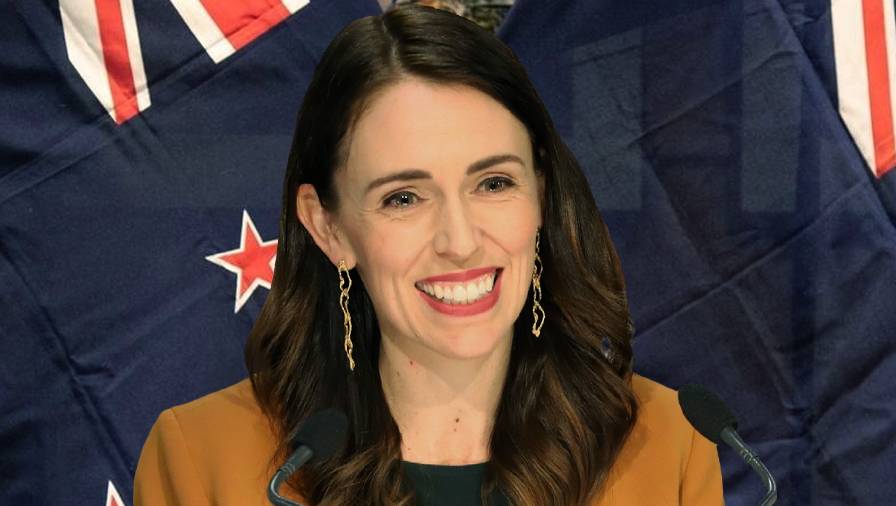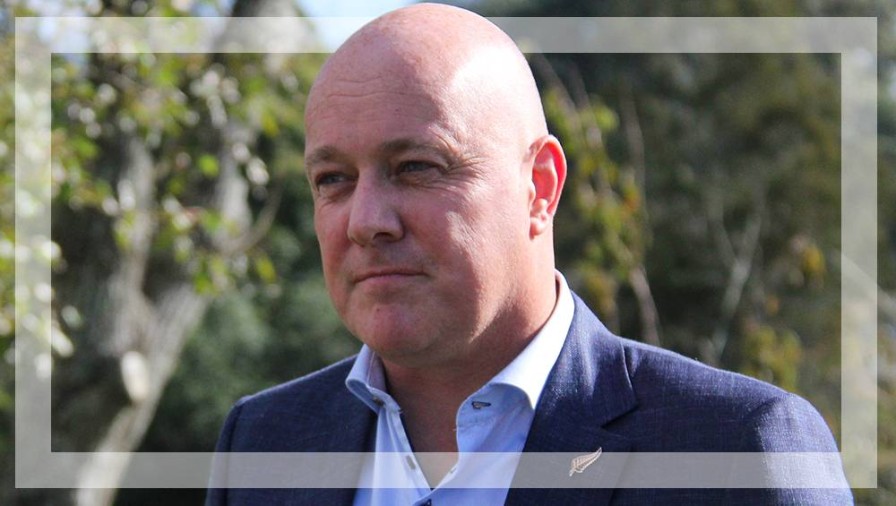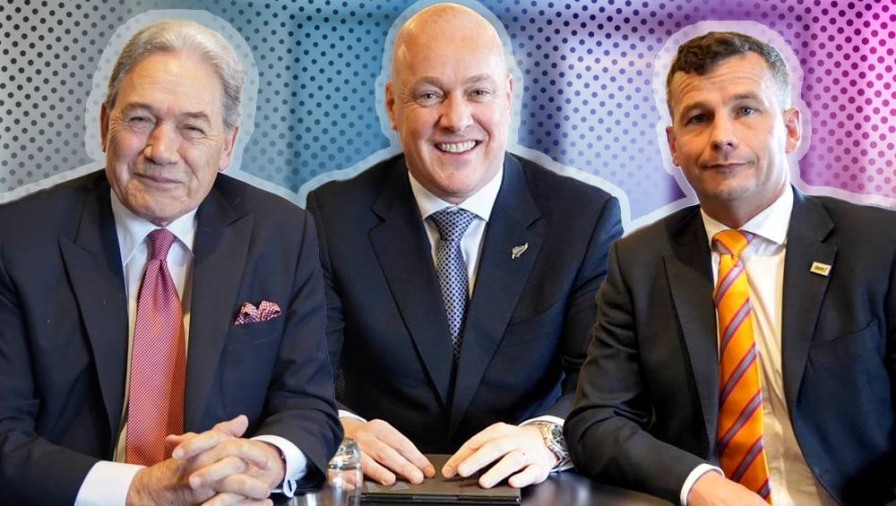Political bombshell and the winners and losers of the year
ANALYSIS: The year started with Jacinda Ardern’s resignation and ended with a change of government.
WATCH: NBR political editor Brent Edwards speaks with Grant Walker.
ANALYSIS: The year started with Jacinda Ardern’s resignation and ended with a change of government.
WATCH: NBR political editor Brent Edwards speaks with Grant Walker.
What a start to the political year.
A little more than two years after she led Labour to a historic MMP victory in the 2020 election, Jacinda Ardern resigned as party leader and prime minister.
Her resignation thrust Chris Hipkins into the top role, with just nine months to turn around Labour’s ailing political fortunes. In the immediate aftermath of Ardern’s resignation and Hipkins’ promotion, Labour did experience a bounce in the polls, but it was short lived.
NBR presenter Grant Walker asks whether Hipkins was handed a poisoned chalice.
There was no doubt he faced a huge – some might say impossible – challenge to lead Labour to another term in government.
The then Government already faced the headwinds of high inflation, a muddling economy, and public dissatisfaction with the response to the Covid-19 pandemic. While the pandemic response helped Labour achieve a single party majority in 2020, by 2023, the public mood had shifted.
Any hope Labour might have had that it could turn things around evaporated when four ministers – Stuart Nash, Michael Wood, Meka Whaitiri, and Kiritapu Allan – all lost or left their jobs under a cloud.

The year started with Jacinda Ardern’s resignation as Prime Minister.
Not that everything was rosy on the other side of politics.
National Party leader Christopher Luxon was criticised for his leadership, although he was to have the last laugh.
Luxon refused to rule out doing a deal with New Zealand First leader Winston Peters, something Hipkins made a very public point of doing. Eventually Luxon said his preference was for a National-Act coalition, but he would work with Peters if he had to.
Some commentators believed that was a strategic mistake and Walker asks whether that gave Peters the oxygen he needed for another political comeback.
Many point to former National leader and Prime Minister Sir John Key ruling out New Zealand First in 2008, an election in which Peters’ party failed to make it into Parliament.
But National’s polling in 2008 was much stronger than its polling in 2023. The numbers suggested for a long time – even when New Zealand First was polling below 5% earlier in the year – that National might need Peters’ support to form a government.
In the end, Luxon’s decision was surely vindicated by the fact he is now Prime Minister. Who knows what would have happened if he had ruled out New Zealand First?
The Act Party – the third member of the coalition – also had a good year but Walker suggests it came a cropper when its leader David Seymour raised the possibility of not going into coalition with National and instead require the party to seek its support on each individual piece of legislation. Maybe, but Act is in government, and with influence. Note that one of the first things the Government will do – aside from scrapping many of Labour’s policies – is to restore interest deductibility for landlords in line with Act’s proposal.

Christopher Luxon’s decision on New Zealand First was vindicated.
So now we get to it. Who were the winners and losers of the political year?
Walker is clear the losers have to be Nash, Wood, Whaitiri, and Allan. They were once ministers but lost their jobs during the year and are no longer in Parliament.
But it has also been a tough year for their Labour colleagues who now find themselves on the Opposition benches with a much-reduced caucus. For the Labour Party, it was a disastrous year.
Both the Green Party and Te Pāti Māori, though, ended the year in good heart, even if they are in Opposition. The Greens had their best election result ever, but they no longer have their hands on the ministerial levers driving climate change policy. Te Pāti Māori also had a great year, winning six of the Māori electorates.
It is that performance that prompts Walker to say, for him, Te Pāti Māori is the party of the year. Yet the party remains in Opposition.
Surely the party of the year must be one, if not all, of the three parties that make up the coalition.
Given New Zealand First was not even in Parliament in the last term and was largely written off in the lead-up to the 2023 election, it surely must be given the title party of the year. It is not only back in Parliament but once again an integral part of the Government. Both National and Act, though, get honorable mentions.

Stuart Nash, one of a string of ministers who left under a cloud causing problems for Chris Hipkins.
That brings us to politician of the year. Having named New Zealand First party of the year, surely its leader Winston Peters should also get the individual gong. But he is not prime minister, which is the most coveted prize for all politicians.
Instead, a man who was not even in Parliament before the 2020 election now leads the country. Christopher Luxon faced plenty of criticism since taking over the National Party leadership, but he united the caucus and put it into a position where it did well enough to form the Government. Given the state of National at the end of 2021, that is no mean feat.
Peters gets an honorable mention, as does Act leader Seymour.
In fact, Seymour deserves some credit for what he has done for Act over the past decade, not just this year. When he was first elected to Parliament as Act’s only MP in 2014 and became leader, the party’s support was languishing around 0.5%. It looked, then and in the subsequent election, that Act was finished as a political force.
But Seymour has saved it from oblivion, and it now plays an influential role in the coalition Government.
So, Seymour, Peters, and Luxon can all end the year satisfied with their political achievements. Just how well they work together over the next three years will determine whether they end 2027 feeling just as satisfied.

The leaders of the three coalition parties can all feel satisfied at the end of the year.